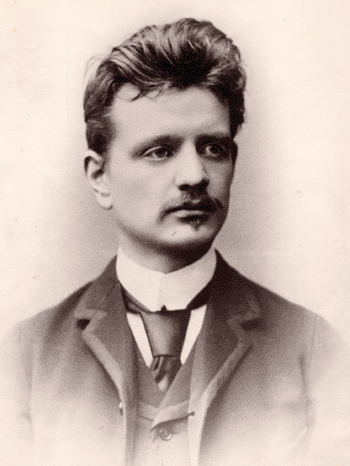In Berlin, the 23-year-old Sibelius had powerful musical experiences. On his very first evening he heard Mozart's Don Giovanni at the Kroll Opera. During his year of study, he attended performances of Wagner's Tannhäuser and The Master Singers of Nuremberg. He went to Hans von Bülow's legendary Historische Klavierabend piano concerts, and to the Beethoven concerts where von Bülow conducted the Berlin Philharmonic Orchestra. He also attended the young Richard Strauss’s Don Juan. The performances by the Joseph Joachim Quartet of Beethoven's quartet in F major opus 59 and Schubert's quartet in C major made a huge impression on Sibelius.

Sibelius became a student of Albert Becker and had to do the rigorous composition exercises that his teacher demanded. Becker was a renowned specialist who had composed a popular mass in B flat minor, and he was a board member of the Royal Academy of Arts. The endless practice in fugal techniques and the laborious counterpoint exercises were no doubt useful, but Sibelius's composing vein dried up for months on end.
Sibelius did not like the atmosphere of Berlin during the period of the Iron Chancellor, Otto von Bismarck; the spirit of the times was too pessimistic and conservative for his taste. He mainly socialised with other foreign students, such as Fini Henriques from Denmark, the Norwegian writer Gabriel Finne and Adolf Paul. Sibelius played chamber music with his friends and bought cheap scores from local second-hand bookshops. In the evenings, he lived far beyond his means, buying tickets for the best seats at the opera and enjoying the cuisine of high-class restaurants. This merry student life led to illness – and even to venereal disease if we are to believe the uninhibited letters he wrote at the time. In November 1889, Sibelius was admitted to hospital.
On his recovery, he met Ferruccio Busoni. Busoni invited Sibelius and Paul to Leipzig to hear the first public performance of a piano quintet composed by their mutual friend Christian Sinding. Busoni was the pianist at the concert. Sinding's work awakened in Sibelius the will to compose, and in the spring of 1890 he put the finishing touches to his only significant work during the Berlin year, the piano quintet in G minor.
While Sibelius was working on his compositions, he heard Robert Kajanus conduct the Berlin Philharmonic. The program included Aino by Kajanus himself. Sibelius was not impressed with the work, but he, too, was interested in combining Kalevala with music, and he dreamt of having his music performed at an equally grand occasion. "The next time it will be me," Sibelius promised himself when he left the concert. His wish came true 12 years later, when he conducted the Berlin Philharmonic in a performance of his own En Saga.
Becker was satisfied with the piano quintet and wrote a positive report in which he emphasised the importance of additional studies. The piano quintet was sufficient proof for the senate, which granted Sibelius a scholarship of 2000 marks (about 8000 euros in today’s money) for the following academic year.
Sibelius did not really want to return to Berlin. He had spent the summer in Finland and was planning to go to Vienna. However, the departure was delayed, since the romance with Aino Järnefelt had been rekindled, leading to a secret engagement in September. Sibelius also put the finishing touches to a quartet in B flat major – a well-balanced composition, and one of the best of his early works. Sibelius even gave the composition an opus number: a unique case among the quartets of his student years.

